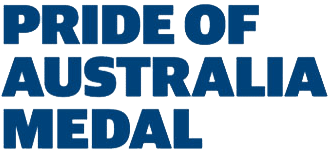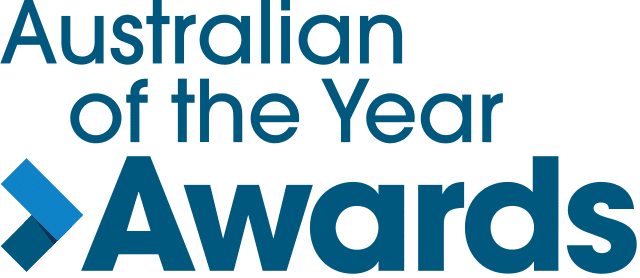Criminal Lawyers Sydney
Criminal Lawyers Sydney
Australian Criminal Law Group
Award-winning Sydney Criminal Lawyers
Founded by NSW Australian of the Year
Fixed Fees & Free First Consultation


Awards & Accolades


Your Sydney Criminal Lawyers
The criminal lawyers at Australian Criminal Law Group are among Sydney’s best-reviewed for criminal and traffic cases.
The difference between the Australian Criminal Law Group and other Sydney criminal lawyers is:
- We have 500+ verifiable 5-star Google reviews across three offices.
- Our criminal lawyers have won awards for their contribution to the legal profession specifically and society generally.
- Each member of our team has at least 5 years of post-admission experience as a criminal lawyer in Sydney.
- The firm is community rather than money-driven, and we do not rip off our clients.
- We are honest, no-nonsense criminal lawyers who do not make up phony success rates or pay for fake awards.
Our results and reputation speak for themselves.
About Us
We are Sydney criminal lawyers founded by esteemed criminal lawyers Joseph Correy and NSW Australian of the Year Deng Adut to provide clients with the best representation at an affordable price.
Our Sydney office is located at:
Level 1/299 Elizabeth St, Sydney (opposite Downing Centre Court)
We offer:
- Award-winning representation from Sydney criminal lawyers with 500+ five-star Google reviews.
- A senior Sydney criminal lawyer guarantee.
- Free first consultations.
- Fixed fees with no hidden costs.
- Expert criminal lawyers who appear exclusively in criminal and traffic cases.
If you want a criminal law firm in Sydney that puts you first, is attentive to your cases, and truly cares about the outcome, then instruct the Australian Criminal Law Group.
Our founders
We were co-founded by Joseph Correy, one of Sydney’s best criminal lawyers, and NSW Australian of the Year Deng Adut.
Joseph and Deng are both known for their excellence in court and contributions to society outside of it. Their efforts have been recognised with awards like the Law Society President’s Medal and the Human Rights Award.
The firm’s partners run its Community Partnership, which provides pro bono assistance and supports educational, cultural, and sporting endeavours.
Google Reviews
Our greatest source of pride for our Sydney criminal lawyers is Google reviews because they are written by the people who matter most to us, our clients.
We are among the best-reviewed criminal lawyers in Sydney, with almost 600+ five-star Google reviews across our three Sydney offices.
You can read what our clients have to say about us here.
Criminal & traffic lawyers
Our Sydney criminal Lawyers appear in all criminal and traffic matters, including hearings and trials, sentencing, bail applications, and appeals.
The cases we specialise in include domestic violence, assault, drug, sex, and fraud offences, as well as unlicensed, dangerous, drunk, and drug-driving offences.
We represent clients in all NSW Courts, and we have criminal law offices in the Sydney CBD, Parramatta, and Blacktown. We also offer phone and video conferences to clients.
Free 1st consult, fixed fee, and a senior lawyer
Our Sydney criminal lawyers have 60+ years of combined experience, with all our criminal lawyers having at least five years of experience as criminal lawyers.
We offer free first consultations, a senior lawyer guarantee, and fixed fees with payment plans.
Awards and Accolades
We are recognised as a top-tier criminal law firm, having received the following accolades:
- Kev’s Best – 10 best criminal lawyers
- Best in Au – 10 best criminal lawyers
- Top 10 lawyers – 10 best criminal lawyers
- Lawyer.com – 12 best criminal lawyers
Awards our team of Sydney criminal lawyers have received include:
Sydney Criminal Law Services
Client Testimonials
- Highly recommend ash a a lawyer. Took care of everything in a very professional manner. Great communication involved through the whole process. Highly recommended 👌read moreread lessJackson5/30/2025They got my suspension reducedread moreread lessGeorgia5/23/2025I found Joe Correy and his team fast moving and very counter productive they gave me all the angles on how we should attack the case and I think we made a good decision on the route we took the outcome was great it couldn't have worked out any better giving the circumstances thankyou Joe Correy and Australian criminal law group On God....read moreread lessMarvin5/21/2025
- Joseph Correy had a high level of professionalism. He responded in a quick manner to reassure me about any questions throughout the entire process which made me feel fully supported. He explained the guidance with patience and worked diligently to achieve the best outcome. I highly recommend Joseph to anyone looking for a trustworthy and experienced criminal lawyer. Thank you so much Joseph.read moreread lessJess5/19/2025Great lawyers. Genuinely care about their clients.read moreread lessDianne5/15/2025ac law group are very professional and there transparency is second to none. I had Mr Correy deal with my case, he was very helpful every step of the way.read moreread lessRio5/07/2025
- My experience with the the law fern was very good I'd recommend them there very good very professionalread moreread lessMichael5/07/2025I have known Joe for more than 20 years and when a family member got in trouble he was the first person I thought of. He saw her straight away and guided her through the court process before going to court and have her charges dismissed with no punishment at all. I would not have trusted her life with anyone else. 5 stars.read moreread lessConstance5/02/2025Great result very pleased with outcome.Highly recommendread moreread lessTyra5/02/2025
In The Press












Our Sydney Law Offices
Award-winning Sydney Criminal Lawyers
Contact Australian Criminal Law Group now for your FREE First Consultation
